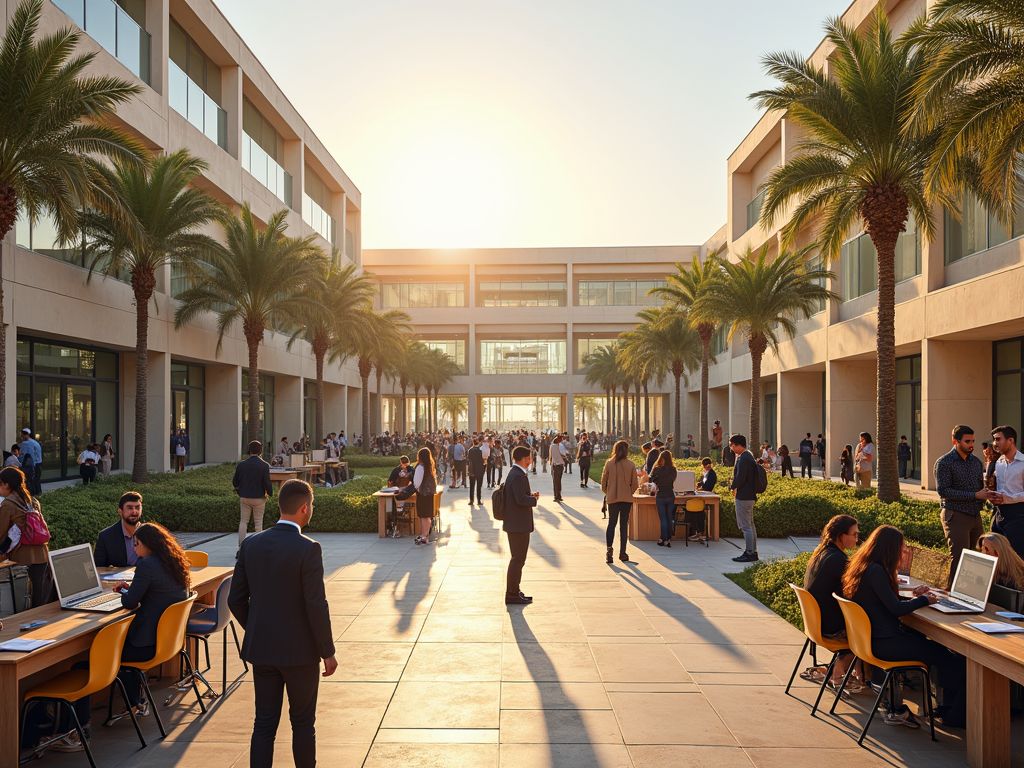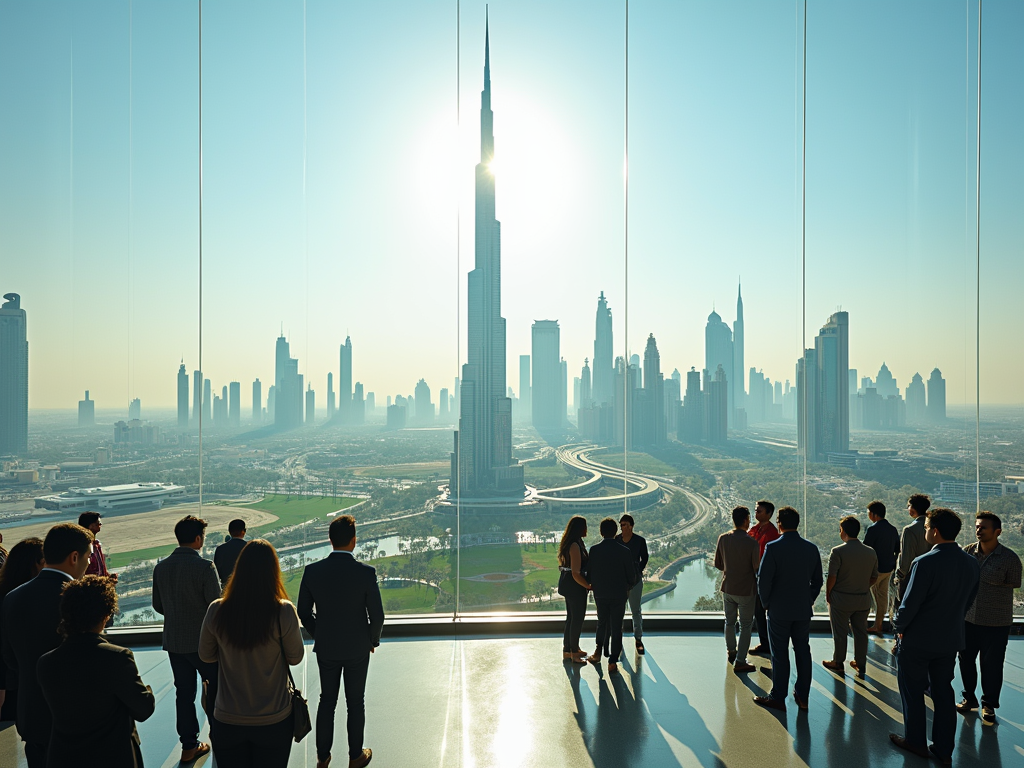Dubai’s knowledge economy is a pivotal aspect of its overall growth trajectory, influencing various sectors and creating a strong foundation for future development. This dynamic framework emphasizes the production and application of knowledge to drive innovation, entrepreneurship, and diversification. The key elements include advanced technology, higher education, and research development, which are essential in positioning Dubai as a global hub for trade and commerce. By fostering a culture of learning and innovation, the knowledge economy supports the UAE Vision 2021 and is crucial for sustainable development. The following sections will explore the components of Dubai’s knowledge economy, its contributions, challenges, and future prospects.
Key Components of Dubai’s Knowledge Economy

Dubai’s knowledge economy is built on several core components that synergize to foster sustainable growth and global competitiveness. These components include:
- Education: Establishing world-class educational institutions that nurture talent and skills.
- Technology: Encouraging the integration and advancement of cutting-edge technologies in various sectors.
- Research and Development: Promoting innovation through extensive R&D initiatives to drive economic diversification.
- Entrepreneurship: Supporting startups and SMEs through funding, mentorship, and access to resources.
- Infrastructure: Developing advanced infrastructure that facilitates connectivity, logistics, and communication.
These elements collectively lay the groundwork for a vibrant knowledge ecosystem that drives Dubai’s economic agenda and enhances its resilience in the global market.
The knowledge economy plays a significant role in contributing to Dubai’s GDP and fostering economic diversification. Key contributions include:
- Increased Innovation: A thriving knowledge economy cultivates cutting-edge ideas, products, and services that boost productivity.
- Job Creation: With the rise of new industries and sectors, job opportunities in technology, research, and education flourish.
- Foreign Investment: The emphasis on knowledge-based industries attracts global players, enhancing Dubai’s status as an investment hub.
- Global Competitiveness: A strong knowledge base ensures Dubai remains competitive on the world stage, especially in high-tech and knowledge-intensive sectors.
- Quality of Life: Knowledge-driven advancements improve public services, healthcare, and quality of living for residents.
Overall, the knowledge economy is a catalyst for sustainable economic growth in Dubai, providing a foundation for long-term prosperity.
Challenges Facing Dubai’s Knowledge Economy

Despite its impressive growth, Dubai’s knowledge economy faces several challenges that need to be addressed to ensure future success. These challenges include:
- Skill Gaps: The rapid evolution of technology demands a skilled workforce, but gaps in education can hinder progress.
- Dependency on Oil: While Dubai has diversified its economy, a lingering oil dependency can pose risks to knowledge-based sectors.
- Investment in R&D: Allocating sufficient resources for research and development remains a constant challenge that needs to be emphasized.
- Competition: Competing with other global cities also developing knowledge economies can dilute market opportunities.
- Regulatory Environment: Navigating regulatory frameworks can be complicated, impacting business growth and innovation.
Addressing these challenges is vital for sustaining a robust knowledge ecosystem that can adapt to future developments and global economic trends.
Future Prospects for Dubai’s Knowledge Economy
The future of Dubai’s knowledge economy is bright and promising, with several strategic initiatives already underway to enhance its development. Upcoming prospects include:
- Smart City Initiatives: Investments in smart technologies to improve urban living and attract tech-driven companies.
- Global Collaborations: Forming partnerships with international educational and research institutions to enhance knowledge sharing.
- Sustainable Practices: Incorporating sustainability into the knowledge economy to meet global environmental goals and investor expectations.
- Support for Innovation Hubs: Encouraging the establishment of incubation centers and innovation hubs to foster entrepreneurship.
- Skill Development Programs: Enhancing training and skill development initiatives to equip the workforce for emerging industries.
By fostering these prospects, Dubai can continue to advance its knowledge economy and solidify its status as a global leader in innovation and business dynamics.
Conclusion
Dubai’s commitment to establishing a knowledge economy is not just evident in its economic policies but also in its vision for the future. By investing in education, technology, and innovation, the emirate is well-poised to overcome challenges and enhance its overall competitiveness. The interplay of various components contributes to sustainable growth and the attraction of global investments. As Dubai navigates its transformation into a knowledge-driven economy, it sets an exemplary benchmark for other cities aiming for similar goals. This focus on knowledge is not merely a trend; it is a fundamental shift that will shape Dubai’s identity in the coming years, supporting its aspirations for a prosperous and versatile future.
Frequently Asked Questions
1. What is a knowledge economy?
A knowledge economy is a system of consumption and production that is based on intellectual capital. It emphasizes the importance of knowledge as a key resource for economic growth, innovation, and competitiveness.
2. How is technology influencing Dubai’s knowledge economy?
Technology plays a crucial role by facilitating innovation, enhancing productivity, and creating new opportunities in various sectors such as finance, healthcare, and education.
3. What are the main challenges Dubai faces regarding its knowledge economy?
Major challenges include skill gaps in the workforce, dependency on oil revenues, competition from other global cities, and the need for continued investment in research and development.
4. How does Dubai’s knowledge economy impact employment?
The knowledge economy contributes to job creation in specialized fields and sectors, offering new opportunities and promoting professional growth for the workforce.
5. What future initiatives are planned for Dubai’s knowledge economy?
Future initiatives include advancements in smart city technologies, global collaborations with research institutions, sustainable business practices, and enhancing skill development programs.
